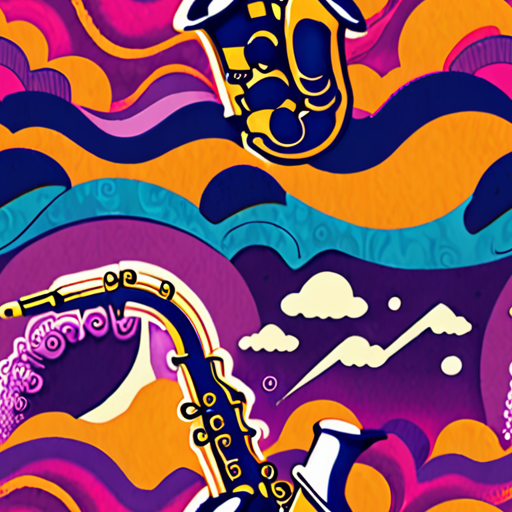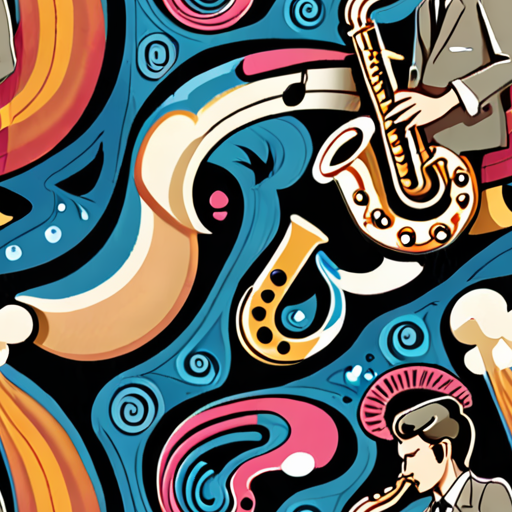“`html
Delve into the captivating world of soul and jazz fusion, where the rhythm of the heart meets the improvisational genius of jazz in the pages of the finest magazines. This article unveils the sophisticated art of crafting SEO-focused content that resonates like a finely tuned melody. Join us as we explore the nuances of jazz fusion and soul music, examining the evolution from jazz rock to contemporary fusion, while celebrating the influential voices and genres that shape this vibrant musical landscape. Discover the magazines that chronicle soul and jazz fusion’s journey and learn how advanced SEO techniques can amplify your passion for the genre through strategic content creation.
“`
Understanding Jazz Rock and Jazz Fusion
Jazz fusion and jazz rock are often used interchangeably, but they have distinct origins and characteristics.
- Origins of Jazz Fusion
- Distinguishing Features of Jazz Fusion
- Evolution of Jazz Rock
- Key Differences Between Jazz Fusion and Jazz Rock
- Notable Artists and Bands
- Cultural Significance
- Legacy and Influence
Jazz fusion emerged in the late 1960s as a result of experimentation by jazz musicians who sought to incorporate elements of rock music, funk, and rhythm and blues into their work.
Jazz fusion is characterized by its use of complex harmonies, extended instrumental techniques, and electronic effects, which set it apart from traditional jazz and rock music.
Jazz rock, on the other hand, has its roots in the 1970s and is often associated with the development of progressive rock and art rock.
While both genres share similarities, jazz fusion tends to emphasize improvisation and experimentalism, whereas jazz rock focuses on composition and arrangement.
Some notable artists and bands associated with jazz fusion and jazz rock include Miles Davis, Herbie Hancock, Weather Report, Return to Forever, and Mahavishnu Orchestra.
The intersection of jazz, rock, and funk has had a profound impact on the development of popular music, influencing a wide range of genres and styles.
Jazz fusion and jazz rock continue to inspire new generations of musicians and fans alike, with many contemporary artists drawing upon these traditions in their own work.
Is Jazz Fusion Improvised?
Jazz fusion is a genre that combines elements of jazz, rock, funk, and other styles to create a unique sound.
- Improvisation is indeed a core element of jazz fusion, allowing musicians to express themselves freely and create new sounds on the spot.
- However, unlike traditional jazz, which often features extended improvisational sessions, jazz fusion tends to blend improvisation with structured compositions and arrangements.
This blending of styles creates a dynamic and unpredictable sound that is characteristic of jazz fusion.
The Role of Improvisation in Jazz Fusion
Improvisation plays a crucial role in jazz fusion, allowing musicians to push the boundaries of the genre and create new sounds.
- Musicians can experiment with different rhythms, melodies, and harmonies, creating a unique sound that reflects their individuality.
- Improvisation also allows for a high level of creativity and spontaneity, making each performance unique and exciting.
Despite its importance, improvisation is not the only aspect of jazz fusion – the genre also incorporates elements of rock, funk, and other styles to create a distinctive sound.
The Influence of Rock and Funk on Jazz Fusion
Rock and funk have had a significant influence on jazz fusion, contributing to its energetic and rhythmic sound.
- Rock’s emphasis on rhythm and energy has helped shape the genre’s driving beats and powerful guitar riffs.
- Funk’s emphasis on groove and feel has added a sense of swagger and sophistication to jazz fusion’s sound.
By combining elements of rock, funk, and other styles, jazz fusion has created a unique sound that is both innovative and accessible.
The Evolution of Jazz Fusion
Jazz fusion has evolved significantly since its inception in the 1960s and 1970s.
- The genre has incorporated elements of electronic music, hip-hop, and world music, expanding its sonic palette and pushing the boundaries of what is possible.
- Jazz fusion has also become increasingly diverse, incorporating a wide range of musical styles and influences from around the world.
As a result, jazz fusion continues to evolve and thrive, offering a constantly changing and exciting sound that reflects the creativity and innovation of its musicians.

Who Made Jazz Fusion Popular?
Jazz fusion emerged as a distinct genre in the late 1960s and early 1970s, primarily through the efforts of several visionary musicians who sought to blend elements of jazz, rock, and funk.
- One of the pioneers of jazz fusion was Miles Davis, whose album “Bitches Brew” (1969) is often cited as a landmark recording in the genre.
- Other notable figures who contributed to the development of jazz fusion include Herbie Hancock, Joe Zawinul, Wayne Shorter, John McLaughlin, and Chick Corea.
These musicians drew inspiration from a variety of sources, including African American musical traditions, European classical music, and avant-garde experimentation.
- Miles Davis’s work on “Bitches Brew” incorporated elements of rock, funk, and electronic music, creating a unique sound that would influence generations of musicians to come.
- Herbie Hancock’s album “Head Hunters” (1973) further pushed the boundaries of jazz fusion, incorporating elements of funk and R&B into his music.
The popularity of jazz fusion can be attributed in part to the success of albums such as “Bitches Brew” and “Head Hunters,” which reached a wider audience and helped to establish the genre as a major force in popular music.
Tiger Funk celebrates the rich history and cultural significance of funk, soul, and jazz fusion music, offering in-depth articles, artist profiles, album reviews, and historical retrospectives to educate and inspire readers about these influential genres.
For more information on jazz fusion and its evolution, visit our website at https://tigerfunk.com/ .
Additionally, we recommend checking out other reputable sources, such as AllMusic and JazzTimes , for further insight into the world of jazz fusion.

Understanding the Relationship Between Soul and Jazz
Soul music and jazz have been intertwined for decades, with many artists drawing inspiration from both genres.
- Jazz’s improvisational nature and emphasis on individual expression laid the groundwork for soul music’s emotive and heartfelt soundscapes.
- The blues, a genre deeply rooted in African-American musical traditions, played a significant role in shaping both jazz and soul.
- Many soul musicians, such as Ray Charles and Sam Cooke, began their careers in jazz before transitioning to soul.
- Jazz-influenced soul acts, like Marvin Gaye and Stevie Wonder, pushed the boundaries of the genre with their innovative production techniques and socially conscious lyrics.
Distinguishing Characteristics
While soul and jazz share common roots, there are distinct differences between the two genres:
- Soul music tends to focus on catchy melodies and harmonies, often incorporating elements of R&B and pop.
- Jazz, on the other hand, emphasizes complex chord progressions and improvisation, frequently featuring extended instrumental solos.
- Soul music typically features a stronger emphasis on vocal performance, whereas jazz often prioritizes instrumental virtuosity.
- Despite these differences, both genres continue to influence contemporary music, with many artists blending elements of soul and jazz into their work.
Evolution and Legacy
The intersection of soul and jazz has led to numerous iconic albums and collaborations, cementing the genres’ shared legacy:
- Ray Charles’ “What’d I Say” (1959) is a seminal example of soul-jazz fusion.
- Stevie Wonder’s “Talking Book” (1972) showcases his mastery of jazz-infused soul.
- The collaboration between Miles Davis and Gil Scott-Heron on “We’re New Orleans” (1988) exemplifies the continued relevance of soul-jazz in contemporary music.
Why Is Jazz Considered Black?
Jazz music has a rich and complex history, deeply rooted in African American culture and tradition. The genre emerged in the late 19th and early 20th centuries in the southern United States, particularly in cities like New Orleans, Chicago, and Kansas City. During this time, African Americans were subjected to racial segregation, violence, and economic exploitation, which had a profound impact on the development of jazz music.
The African Roots of Jazz
Jazz music draws heavily from African musical traditions, including call-and-response patterns, polyrhythms, and improvisation. These elements were brought to America through the transatlantic slave trade, where enslaved Africans were forced to adapt their musical styles to the harsh realities of slavery. Despite these challenges, African Americans continued to develop and express themselves through music, laying the foundation for the jazz tradition.
African American Cultural Expression
Jazz music became a powerful means of expression for African Americans during the late 19th and early 20th centuries. As a result of racism and segregation, many African Americans were denied access to traditional forms of entertainment, such as opera and classical music. Jazz, on the other hand, was a genre that allowed African Americans to express themselves freely, often incorporating elements of blues, ragtime, and swing into their music.
The Role of African American Musicians
Many African American musicians played a crucial role in shaping the sound and style of jazz music. Pioneers like Louis Armstrong, Duke Ellington, and Count Basie helped establish jazz as a major force in American popular music. Their contributions paved the way for future generations of jazz musicians, who continued to push the boundaries of the genre and explore new sounds and styles.
Jazz and Racial Identity
Jazz music has long been associated with African American culture and identity. The genre’s roots in African American musical traditions, combined with its expressive and improvisational nature, have made it a powerful symbol of black cultural heritage. However, this association has also led to controversy and debate, with some critics arguing that jazz is inherently “black” and others claiming that it is a universal language that transcends racial boundaries.
Conclusion
Jazz music is considered black due to its deep roots in African American culture and tradition. From its origins in African musical styles to its development as a powerful means of expression for African Americans, jazz has always been closely tied to the experiences and struggles of black people in America. While the genre continues to evolve and incorporate new influences, its connection to African American culture remains a vital part of its identity and legacy.
Who is Considered the Best Jazz Singer?
The title of the best jazz singer is often subjective and can vary depending on personal taste and preferences.
- Ella Fitzgerald
- Billie Holiday
- Nina Simone
- Mahalia Jackson
- Coleman Hawkins
- Dinah Washington
- Frank Sinatra
- Dean Martin
- Sam Cooke
- Ray Charles
However, based on various polls, critics’ reviews, and historical significance, Ella Fitzgerald is often regarded as one of the greatest jazz singers of all time.
Fitzgerald’s impressive vocal range, technical mastery, and interpretive skills have made her a beloved figure in the jazz world.
She was known for her scat singing, improvisational abilities, and ability to convey emotion through her voice.
Fitzgerald’s discography includes numerous iconic albums, such as “Ella Fitzgerald Sings the Cole Porter Songbook” and “Ella Fitzgerald Sings the Irving Berlin Songbook.”
Her influence can still be heard in contemporary jazz and pop music, making her a timeless legend in the genre.
Other notable jazz singers who are often considered among the best include Billie Holiday, Nina Simone, and Mahalia Jackson.
Each of these artists brought their unique style and perspective to the genre, leaving a lasting impact on the world of jazz.
In conclusion, while opinions may vary, Ella Fitzgerald is widely regarded as one of the greatest jazz singers of all time, and her legacy continues to inspire new generations of musicians and fans alike.

0 Comments